I started writing this thing about George Orwell ages ago and never got it finished, but suddenly it seems possibly relevant, so here it is, not quite in the final form intended, extremely long-winded, but hopefully more-or-less coherent. I should also point out that lots of my own views are expressed here, because I can.
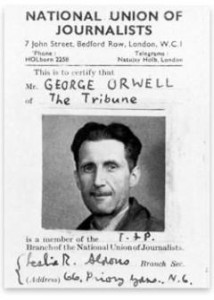
Sales of 1984 have risen sharply lately; but although there is definitely no wrong place to start reading Orwell, to me the most relevant of his works for the present day (coincidentally, also my favourite writings of his) are to be found in the four-volume Collected Essays, Journalism and Letters of George Orwell, published by Penguin in the 60s and I assume still in print. I got the four volumes in a charity shop about fifteen years ago for 80 pence; as Orwell himself said about buying bound volumes of Punch, it was one of the best bargains I have ever had. I’ve read and re-read them more than almost any other books I own and there’s never a time when I can pick them up without finding something there to grip me.
The essays are also intensely relevant to this particular part of the 21st century, because the preoccupations that led to his writing 1984 and Animal Farm are there in their rawest form;
“The era of free speech is closing down. The freedom of the press in Britain was always something of a fake, because in the last resort, money controls opinion; still, so long as the legal right to say what you like exists, there are always loopholes for an unorthodox writer.” (Why I Joined the Independent Labour Party, 1938, vol 1, p. 373)
As it happened, the era of free speech never did quite close down (so far anyway), but it should be remembered that Hitler and even more so, Mussolini, were far from universally reviled in Britain, right up to the start of World War Two. As late as 1940, Orwell could write;
“It is a sign of the speed at which events are moving that Hurst and Blackett’s unexpurgated edition of Mein Kampf, published only a year ago, is edited from a pro-Hitler angle… He had crushed the German labour movement, and for that the property-owning classes were willing to forgive him almost anything.” (Vol 2, p 27)
“The British ruling class were not altogether wrong in thinking that Fascism was on their side. It is a fact that any rich man, unless he is a Jew, has less to fear from Fascism than from either Communism or Democratic Socialism. One ought never to forget this, for the whole of German and Italian propaganda is designed to cover it up.” The Lion and the Unicorn, 1940 (Vol 2, p. 92).
The idea of Fascism is very much still with us, but it’s interesting to find that, despite Mussolini’s explicit adoption of the word, it was no more clearly defined in 1944 than it is now;
“Except for the relatively small number of Fascist sympathisers, almost any English person would accept ‘bully’ as a synonym for ‘Fascist’. That is about as near to a definition as this much abused word has come.”
“…it is impossible to define Fascism satisfactorily without making admissions which neither the Fascists themselves, nor the Conservatives, nor Socialists of any colour, are willing to make. All one can do for the moment is to use the word with a certain amount of circumspection and not, as is usually done, degrade it to the level of a swearword.”
As I Please, 1944, vol. 3 p. 138-9
In fact, it’s surprising (and a bit alarming) to find just how relevant much of Orwell’s wartime writing is – the continuity of life in the UK is still, a world war and a sexual revolution later, surprisingly noticeable. For instance, a quote from the Daily Mail in 1932 shows that, despite being written and edited by entirely different people, the newspaper’s character has hardly changed almost a century later:
“With that rather morbid commiseration for fanatical minorities which is the rule with certain imperfectly informed sections of British public opinion, this country long shut its eyes to the magnificent work that the Fascist regime was doing. I have several times heard Mussolini himself express his gratitude to the Daily Mail as having been the first British newspaper to put his aims fairly before the world.” Daily Mail, quoted in Who Are The War Criminals?, 1943, vol 2, p. 365)

Orwell changes with the times. Much of the current referencing of Orwell has to do with language; ‘newspeak’ and government propaganda, whereas a few decades ago it was more to do with surveillance & ‘big brother,’ but he remains a constant source of reference, in a way that very few writers of his generation are. It’s noticeable that people nowadays seem, paradoxically, to be more sceptical than ever about the information given out by the media and government (which is in itself a fairly healthy thing) but also almost unbelievably credulous when it comes to any old nonsense that comes from unverified (mostly online) sources. This would not have surprised Orwell, who, reflecting on the ‘truth’ of the Spanish Civil war, wrote;
“Even if Franco is overthrown, what kind of records will the future historian have to go upon? And if Franco or anyone at all resembling him remains in power, the history of the war will consist quite largely of ‘facts’ which millions of people now living know to be lies. One of these ‘facts’ for instance, is that there was a considerable Russian army in Spain. There exists the most abundant evidence that there was no such army. Yet if Franco remains in power, and if Fascism in general survives, that Russian army will go into the history books and future schoolchildren will believe in it. So for practical purposes the lie will have become the truth.” As I Please, 1944, (vol.3 p. 110)
Also, the age of ‘nasty’ and ‘difficult’ women and ‘deplorable’ people would not have shocked him;
“Someone could write a valuable monograph on the use of question-begging names and epithets, and their effect in obscuring political controversies. It would bring out the curious fact that if you simply accept and apply to yourself a name intended as an insult, it may end by losing its insulting character.” As I Please, 1945, Vol 3 p.372
The moral of this seems to be that, if you want your insults to hurt, choose an epithet that no remotely normal person would embrace; easier said than done perhaps.
Orwell was writing in a time when political ideas, on both the extremes of left and right, were being expressed with absolute conviction, but without much sense of reality, let alone any humanistic thought. Orwell’s own writings are notable because above all else, he accepts the basic fact about human beings; we are all the same because we are all different. He was therefore an enemy of totalitarianism, because no abstract system of thought can allow for humanity in all its illogical, unpredictable variety. He was a socialist, but of an extremely undogmatic type, probably because his own upper class background (he was educated at Eton and was afterwards a member of the Imperial Indian Police in Burma) meant that his egalitarian beliefs were not obviously in his own interests. The fact that he had direct experience of the colonial system of rule meant that he couldn’t overlook – as most left-leaning political theorists did – the fact that the oppressed majority that made up the working class at home was mirrored by a far vaster, even more oppressed majority elsewhere. An early essay, A Hanging (1931) – based on his experiences as a policeman in Burma – is important for the development of his socialist beliefs because, as is the case in all of his writing, he confronts his own attitudes, rather than simply judging others’ attitudes based on the political system he has adopted. It’s also a brilliant piece of writing;
“He and we were a party of men walking together, seeing, hearing, feeling, understanding the same world; and in two minutes, with a sudden snap, one of us would be gone – one mind less, one world less.” (Vol 1, p.68-9)
The truth that he acknowledges here, that (to unfortunately/accidentally quote USA For Africa) ‘we are the world’, or more accurately but far more awkwardly – the world as we understand it is the result of our own perceptions of it – is to me a vitally important part of any political discussion. I have sometimes been a bit dubious of my belief in individualism, a philosophy (not that it is a philosophy to me really) which has often had right-wing (and always has selfish) connotations; but the (Conservative) Prime Minister attacked it recently, which is encouraging. To me – I have no idea if Orwell would have agreed – individualism automatically entails a wider humanistic view. The idea that if I am this particular collection of thoughts, feelings and perceptions suggests that other people, in their different ways, are this too. We are either all important or none of us are. 1984, Animal Farm and many of Orwell’s essays stress the loss of individualism in any Totalitarian philosophy. But while we still live in a relatively free society, his writing on the undercurrents that have their end point in totalitarianism are (to me) even more important. In 1945 he wrote;
“Nationalism, in the extended sense which I am using the word, includes such movements and tendencies as Communism, political Catholicism, Zionism, Antisemitism, Trotskyism and Pacifism. It does not necessarily mean loyalty to a government or a country, still less to one’s own country, and it is not even strictly necessary that the units in which it deals should actually exist. To name a few obvious examples, Jewry, Islam, Christendom, the Proletariat and the White Race are all of them the objects of passionate nationalistic feeling: but their existence can be seriously questioned, and there is no definition of any one of them that would be universally accepted.” Notes on Nationalism, 1945, vol 3, p. 412
This seems to me to hold as true now as it did then. Phrases of the moment, like ‘take our country back’ or ‘Make America Great Again’ are so open to interpretation as to be almost meaningless; but that doesn’t prevent people from taking them extremely seriously. This quote, from the same essay (and with the same disclaimer as to what he means by ‘nationalism’) seems even more appropriate;
“Nationalists have the power of not seeing resemblances between similar sets of facts. A British Tory will defend self-determination in Europe and oppose it in India with no feelings of inconsistency. Actions are held to be good or bad, not on their own merits but according to who does them, and there is almost no kind of outrage – torture, the use of hostages, forced labour, mass deportations, imprisonment without trial, forgery, assassination, the bombing of civilians – which does not change its moral colour when it is committed by ‘our’ side.” (p.418-9)
Orwell is – and he almost always is – careful to delineate exactly what he means when discussing issues such as nationalism, because then, as now, the world was full of people who wilfully misunderstand anything vaguely ambiguous that they don’t like the sound of. Then, as now too, there was a tendency, especially among extreme leftist groups, but not limited to them, to acknowledge one obvious wrong by pointing out other, similar and/or worse abuse, without addressing the original issue at all; evasive nonsense in fact. A recent example; it was World Holocaust Day, so people were naturally sharing a lot of stories about the experience of Jewish people in WW2 on TV and online. As one would expect, the moron minority of Nazis made their usual remarks* but the internet was also full of things like ‘think of that story and substitute ‘Jews’ for ‘Palestinians’” but how about, if you can’t just acknowledge one particular atrocity, substituting it for HUMAN BEINGS? It’s perfectly possible to – and I would say impossible not to – be appalled by the inhumane treatment of people by other people, whatever the origins of both parties. It is entirely possible to be critical (for example) of the policies of the Israeli government without extending that criticism to “Israel” or to Judaism; lots of Jewish people do it in fact. Just as it’s possible to criticise I.S. and Islamic extremism and Hamas without condemning Islam – lots of Muslims do that. It’s entirely possible to flag up the plight of Yemen (and its causes) without also ignoring and/or dismissing the plight of, say, Syria. Unless one has a specific quota of compassion that gets used up, it’s not only possible to do these things, it’s obvious and necessary. It’s important to be specific; the enemies of freedom always are.
*Holocaust denial by people who like the Nazis and don’t like Jews has to be among the most confusing and confused phenomena of our age. These people show their true colours by their assumption that the Holocaust would somehow be less bad if instead of 6 million, there was ‘only’ one million, or a few hundred thousand dead people at the end of it.
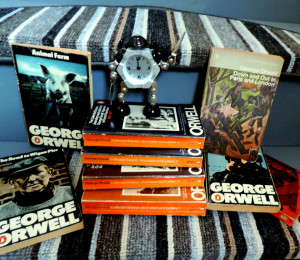
But it’s easy to point out the faults of one’s arch-enemies – it’s worth remembering that when Orwell wrote a review of F. Borkenau’s The Totalitarian Enemy in 1940, he was pointing out not only the truth about Nazi Germany, but also of Stalin’s Russia, which was still, at that point the main inspiration for British socialists, with whom Orwell himself was uncomfortably allied;
“As for the hate campaigns in which Totalitarian regimes ceaselessly indulge, they are real enough while they last, but are simply dictated by the needs of the moment. Jews, Poles, Trotskyists, English, French, Czechs, Democrats, Fascists, Marxists – almost anyone can figure as Public Enemy No. 1.”
“Simply in the interests of efficiency the Nazis found themselves expropriating, nationalizing, destroying the very people they had set out to save. It did not bother them, because their aim was simply power and not any particular form of society.” (Vol 2, p. 41)
It’s not surprising to find that, in the years surrounding the Second World War, Antisemitism was a particularly touchy issue. But again Orwell did not shy away from the fact that Britain itself had a long history of Antisemitic thought (which had in fact been considered entirely respectable in earlier generations) and that, although it seems contradictory, knowledge of the Holocaust initially made British Antisemitism worse because it made people ashamed of their own prejudices, rather than removing those prejudices;
“Whenever I have touched on the subject in a newspaper article, I have always had considerable ‘come-back’, and invariably some of the letters are from well-balanced, middling people – doctors for example – with no apparent economic grievance. These people always say (as Hitler says in Mein Kampf) that they started out with no anti-Jewish prejudice but were driven into their present position by mere observation of the facts. Yet one of the marks of antisemitism is an ability to believe stories which could not possibly be true.” Antisemitism in Britain, (vol 3 p. 385)
At the same time, Orwell’s belief in free speech was not diminished by the fact that people inevitably use it for a variety of ends. When, in 1949 Ezra Pound, a Fascist supporter in the 20s and 30s and a lifelong antisemite, was awarded the Bollingen Prize for poetry despite his earlier ostracisation from the literary world, Orwell expressed his feelings in a response that still feels appropriate;
“Antisemitism… is simply not the doctrine of a grown-up person. People who go in for that kind of thing must take the consequences.”
“I think the Bollingen Foundation were quite right to award Pound the prize, if they believed his poems to be the best of the year, but I also think that one ought to keep Pound’s career in memory and not feel that his ideas are made respectable by the mere fact of winning a literary prize…
“…since the judges have taken what amounts to an ‘art for art’s sake’ position, that is, the position that artistic integrity and common decency are two separate things, then at least let us keep them separate and not excuse Pound’s career on the ground that he is a good writer. He may be a good writer (I must admit that I personally have always regarded him as an entirely spurious writer), but the opinions that he has tried to disseminate by means of his works are evil ones, and I think that the judges should have said so more firmly when awarding him the prize.” (vol 4, p.552)
As I mentioned at the beginning of this article, I have been reading these books for years now; but the fact is that reading them in the past decade has been a far less comfortable experience than it was before that. At the same time, the key subtexts running through Orwell’s work – especially the idea that political ideology is the enemy of individual freedom – remain important lessons to learn. And here I go off on my own tangent, but I’ll come back to Orwell eventually.
I have always been a left-wing liberal with some libertarian leanings and recent events have only confirmed me in my beliefs. More and more, it feels like no one, let alone any political party, can speak on my behalf. Which is a good thing – because the current surge in right-wing extremism has, weirdly, coincided with, on one hand, a willing shirking of responsibility from people who don’t like the things they themselves have voted for, and on the other, a willingness to project that responsibility onto others from the media and parts of the public. That was a long, badly-constructed and confusing sentence, so here’s a concrete example:
In the UK Brexit referendum (which I have zero desire to write about, but it’s an obvious reference point, as is the US presidential election), people voted for Brexit; some got what they wanted and others got what they wanted in theory, but didn’t like it afterwards. They then complained that they were lied to by politicians. This may be true, but it’s deeply disingenuous because –
1) people in the UK, for as long as I can remember, have ALWAYS assumed that politicians lie to them, and more importantly
2) even though the government at the time wanted Brexit and campaigned for it, they made no attempt whatsoever to prevent people from finding out the likely consequences of the vote, or in fact doing any kind of investigation for themselves. The people who complain they were misled and voted through ignorance are one small step away from saying that they shouldn’t be trusted to make important decisions. There are enough powerful people in the world who agree with that to make it a worrying sentiment.
At the same time, a certain part of the media colludes with these idiots. According to these kinds of broadcasters and newspapers the blame for (in this case) Brexit regret somehow lies neither with the people who voted for it, nor with the people who are supposed to have deceived them, but with the last 60 years of liberal thought – of people like Orwell in fact – who have sidelined the views of bigots and Nazis and tried selfishly to foist equality on the world. There are so many reasons this is bullshit, but the most obvious one is just logic. If you leave your front door open while you are out and someone steals your furniture and then police catch the burglar, who should go to prison? The burglar? You, for leaving your door unlocked? Or the rest of society for somehow failing to indoctrinate you in the art of door locking? And if that’s a false analogy (it is, a bit), it’s because the comparison between a positive thing; sixty years of striving towards equality among human beings, each as unique and important as the other, and a neutral thing – leaving one’s door unlocked, is ludicrous. Its patent ridiculousness highlights the malignancy of thought behind the pretence that progressive people have brought right wing extremism on themselves. Rather than making excuses for wilfully ignorant people, Orwell suggests what seems to me a far more sensible response (here in reference to the treatment of Polish and Jewish refugees in postwar Britain);
“I think it is a mistake to give such people the excuse of ignorance. You can’t actually change their feelings, but you can make them understand what they are saying when they demand that homeless refugees should be driven from our shores, and the knowledge may make them a little less actively malignant.” Tribune, 24 January 1947 (vol 4, p.316)
The nonsense spouted now in the press and elsewhere is not just stupidity, it’s stupidity with its own creepy conservative agenda and every day it feels like damage is being done to society by people pretending to speak on the behalf of others. A particularly annoying point because often these people are pretending to speak on the behalf of people like me. As a white, male, working class British person who wasn’t raised in a metropolitan area and still doesn’t live in one, the paternalistic statements continually being made by people who for the most part are metropolitan (no bad thing in itself) and aren’t working class (ditto) are far more oppressive to me than the idea that I should respect the people I have to share the earth with.
It may surprise the people who claim to be championing me, but even people of my class and background have TV, the internet and relatively high standards of literacy. I am not confused or outraged to see people of different races, genders/no gender or different faiths being represented in the media, even if I didn’t grow up in a particularly multicultural area. One of the many mistakes these kinds of commentators make is assuming firstly that the working class (though I belong to it I doubt if there really is such a thing still) is patriotic – which may or may not be true – and that patriotism is by its nature insular and/or xenophobic, which is far less obviously true. To me personally, it is 100% patriotic to want your country to be defined by inclusiveness, diversity & vibrant non-stagnant interactions with other cultures. Or to feel patriotic to the land as actual land and therefore to want to do as little damage to the material fabric of the country as possible. Patriotism was an important topic for Orwell; as he pointed out often, the British intelligentsia of the inter-war years were not only not patriotic, but tended to be embarrassed by appeals to patriotism, a dangerous thing in an era when the worst elements in the world were (and they still are) very aware of the power of appealing to nationalistic sentiment. Orwell’s work is often imbued with a love of Britain and British culture even though he was not at all blind to or uncritical of its inequalities. He was always careful, too, to separate patriotism from nationalism, which he abhorred.
“Nationalism is not to be confused with patriotism… By ‘patriotism’ I mean devotion to a particular place and a particular way of life, which one believes to be the best in the world, but which has no wish to force upon other people. Patriotism is defensive, both militarily and culturally. Nationalism, on the other hand, is inseparable from the desire for power. The abiding purpose for every nationalist is to secure more power and more prestige, not for himself, but for the nation or other unit in which he has chosen to sink his own individuality.” Notes on Nationalism, 1945 (vol 3, p. 412)
“Patriotism has nothing to do with conservatism. It is devotion to something that is changing but is felt mystically to be the same.” My Country Right or Left, 1940 ( Vol 2, p.591)
He says a lot more on the subject, and really it’s worth reading his essays, because he is aware of the appeal of the things he doesn’t like in a way that is exceptionally rare in political journalism. My own disliking of nationalism has something to do with the (it seems to me) artificial divisions it seems to involve. I have been to several countries; all of them were beautiful, all of them had wonderful people and less wonderful people, all of them had interesting cultures, and were distinctively but at the same time not deeply different to my own culture. Also, nationalism seems to entail making generalisations which I’d rather not make. I am not someone who really likes belonging to things. I don’t like watching or participating in sports, I’m not interested in the monarchy. I don’t really enjoy being in any crowd that has a purpose (though oddly I quite like being in aimless crowds on streets etc) and while I am happy to support specific things and causes, when faced by a group with more than one aim – like a political party – I tend to be dubious.
I have a lot of sympathy for William Blake’s statement “To Generalize is to be an Idiot; To Particularize is the Alone Distinction of Merit.” Admittedly, Blake also wrote “a Horse is not more a Lion for being a Bad Horse”; but that’s genius for you. But I think he was right about generalising, though perhaps Mark Twain was even more right when he said in his smartass way “all generalizations are false, including this one.” I believe personally that valuing what is most individual about us is important, in part because it is impossible to have any kind of equality while seeing people as less than the equivalent of yourself. And it’s important, especially when so much of the media is willing to overlook the fact, to point out that civil defence movements like Black Lives Matter and groups like the Women’s Equality Party are doing no more (and no less) than insisting on something that almost everyone apart from the stupidest elements in society automatically agrees with; that humans are created equal. The only generalisation about humanity worth making is the platitude so perfectly coined by Depeche Mode; people are people. To categorise beyond that only diminishes the personhood (what a horrible word) of those you are talking about. Kristin Hersh puts it thusly;
“Is there a difference between male and female people? Is there? Seriously. I have yet to identify a single character trait I would attribute solely to one gender or the other.” (Rat Girl, 2010, p. 198)
Me either. Since I have descended into this kind of thing, here are some brief bullet pointed things that I believe, that I am sure not everyone agrees with. I list them for clarity, since at least 80% of this article is waffle:
- Inclusivity isn’t a favour to be bestowed from on high to various groups out of all proportion with their numbers, it is exactly what every adult human being expects, and should be able to expect, from a healthy society.
- People can and should think whatever they like; but states and governments should be concerned only about the welfare of all of the people that make up that society– otherwise why should those people contribute to it?
- Cultures like that of Britain are not undermined by diversity. It is in their nature to be diverse, they always have been and always will be.
- The simple idea that everyone is equal does not exclude anyone except for those who wish to exclude themselves, for whatever deluded reason.
- Anyone who thinks that the advances in equality since the 60s have in some way altered society to the detriment of ‘ordinary’ people have a) been walking around with their eyes closed their whole life and b) have a narrow & distorted view of what ‘ordinary’ people are.
- Other peoples’ rights are your rights. If people express themselves harmlessly in ways you don’t like, it’s none of your business.
- there are ideas/philosophies that can’t be reconciled or compromised with. The worst people in history have always believed that, so everyone else has to, too.
ANYWAY: all this was mainly to say, if you are interested in George Orwell but haven’t read him, by all means read 1984 and Animal Farm, but if, as well as seeing a nightmare vision of where we could end up you also want insights into how the world got to where it is right now, as well as lots of interesting, funny and above all, well written articles on a variety of topics (not just politics, but popular culture, food and drink, murder, literature, to name a few), try his Collected Essays, Journalism and Letters.
“It is not possible for any thinking person to live in such a society as ours without wanting to change it.” Why I Joined the Independent Labour Party, 1938, (vol 1, p. 374)”
One of the appropriate responses to being alarmed by events is to do whatever it is you are good at doing in order to try to improve the situation; what Orwell did was to understand, and to write.
next… more inane stuff about music, thankfully

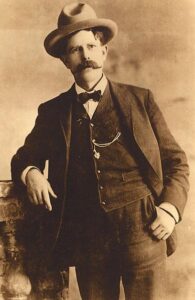






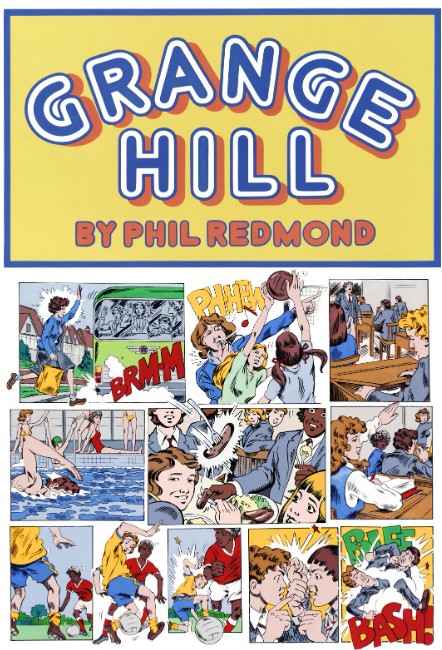





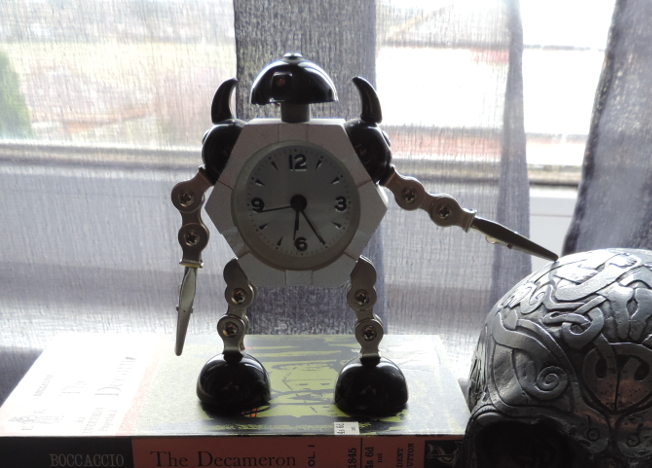

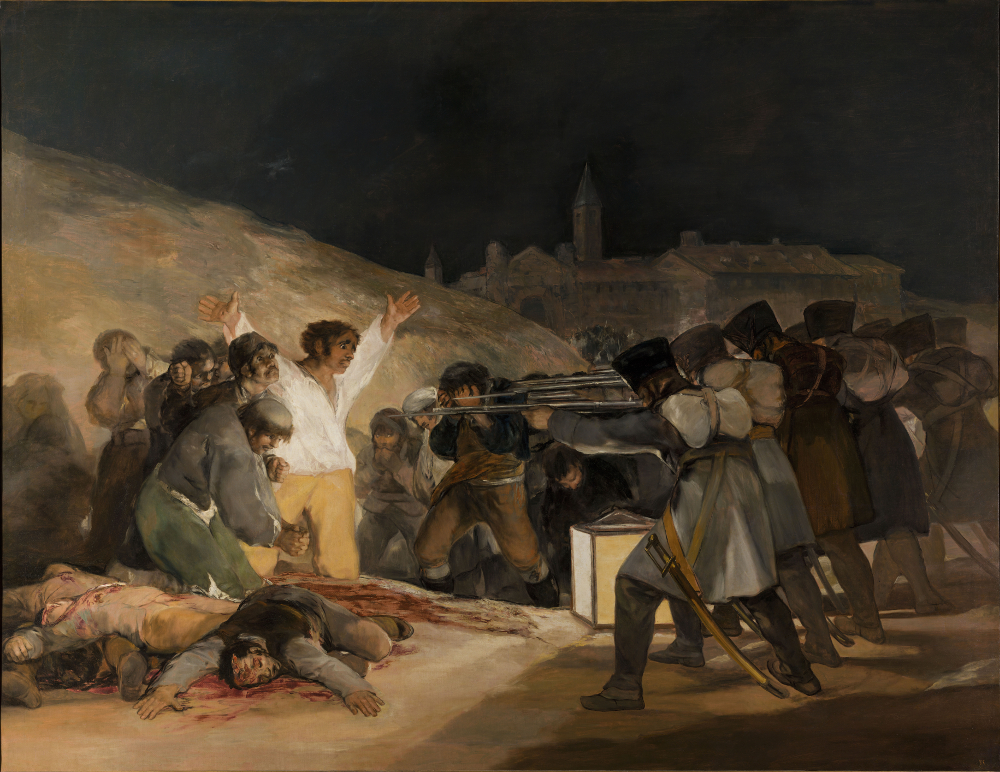
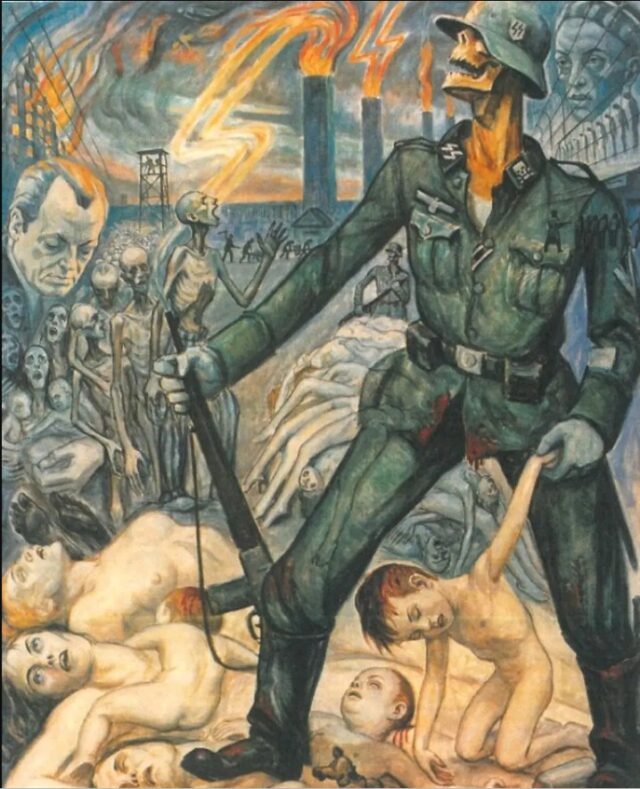


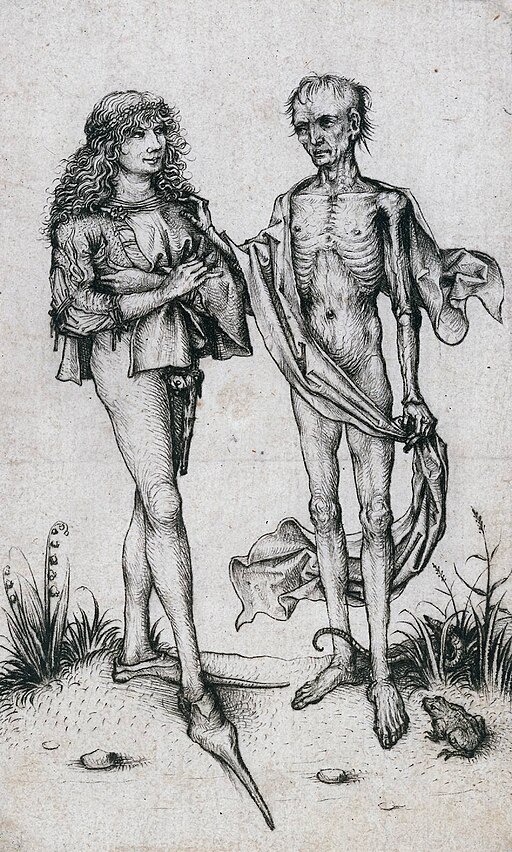
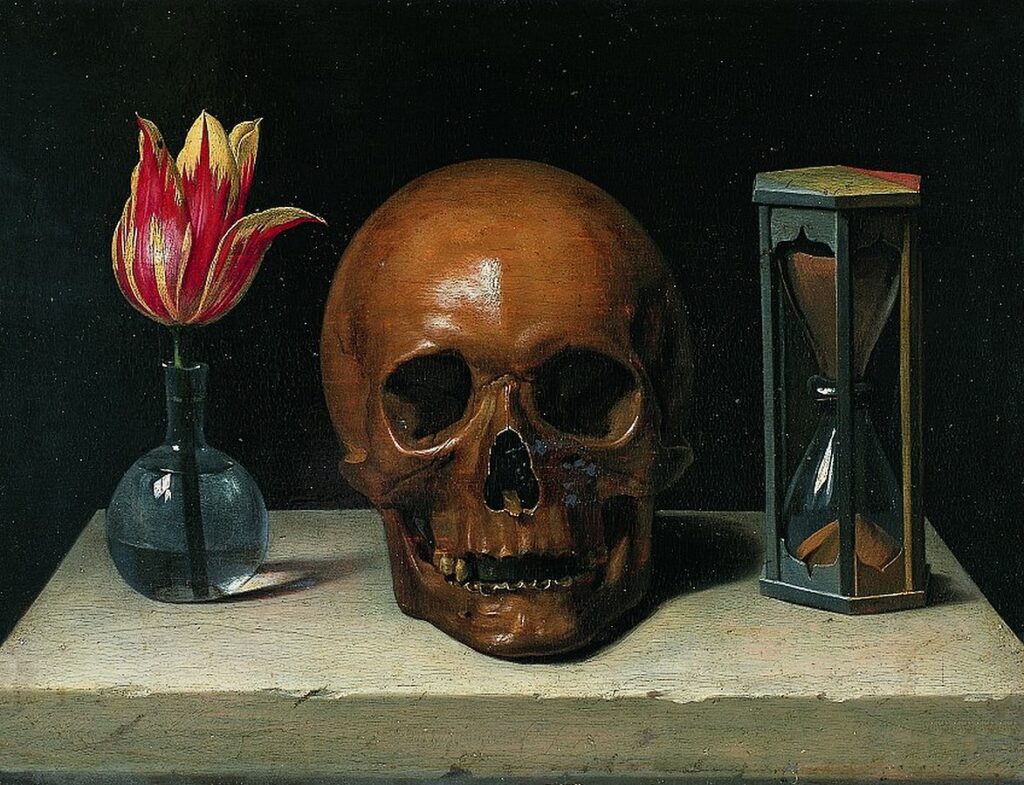

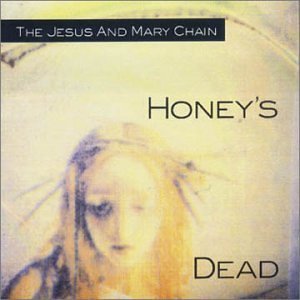


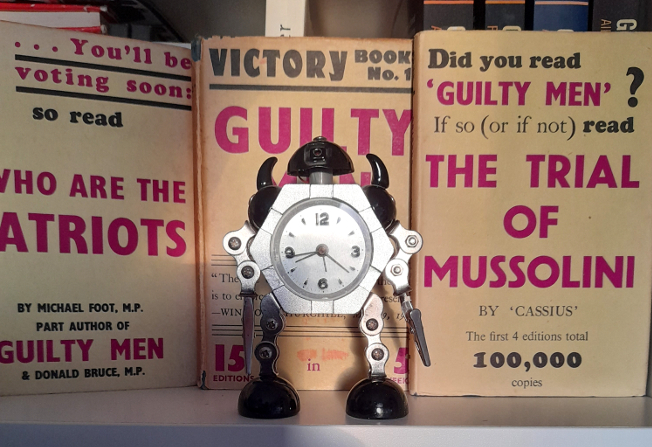


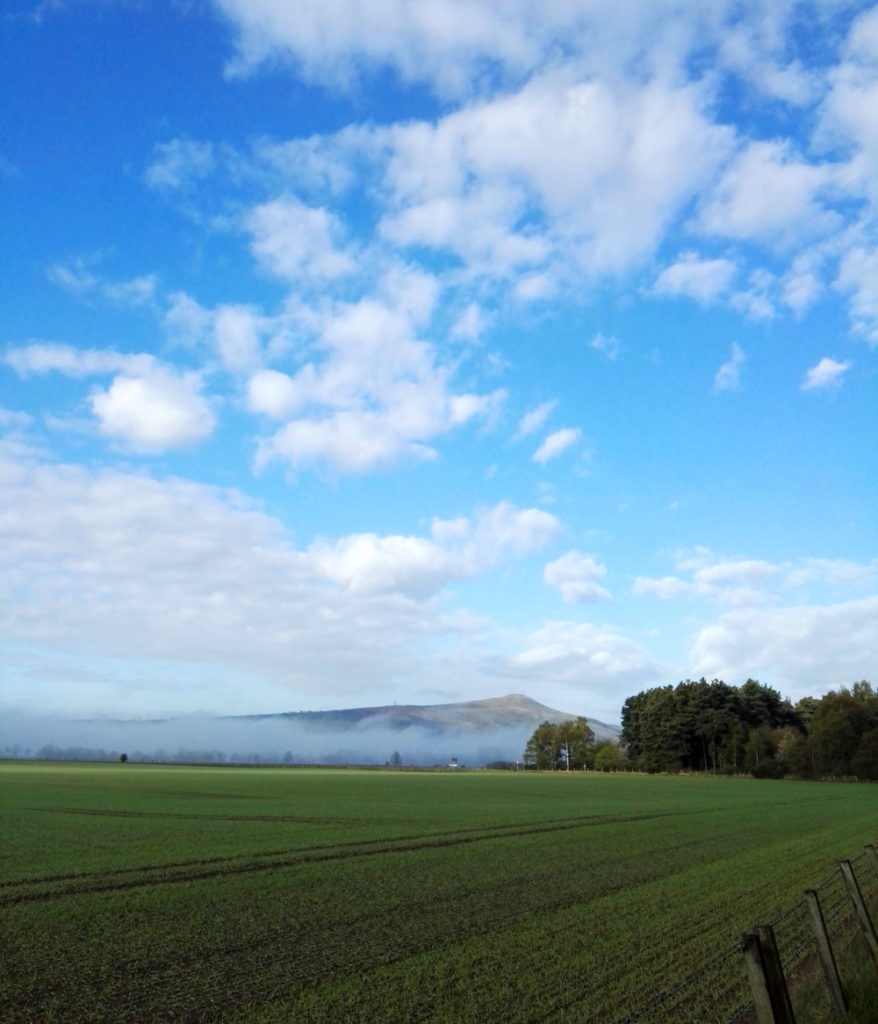
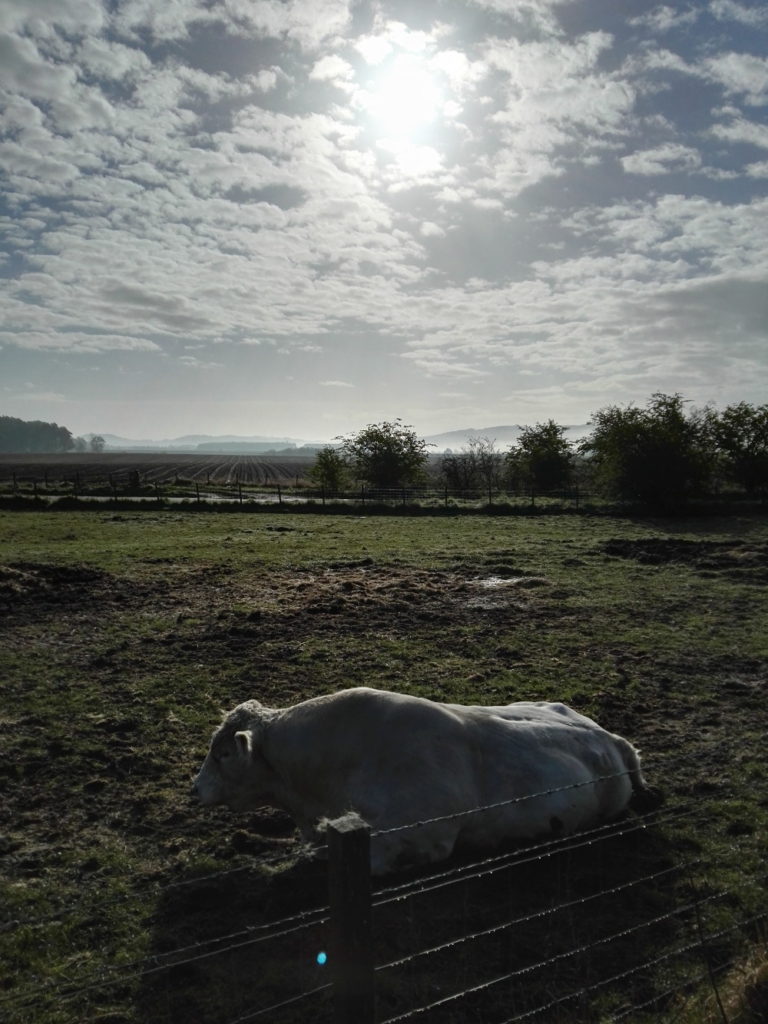



 Looking at the scenery, the wildlife, the roads, you have to wonder; why would anyone not care about this? I don’t mean the Howe of Fife, or Fife, or Scotland, or Britain, or Europe, or the world (although those too); just wherever you happen to be; place. Landscapes should and must change, as we change; not just the geometries and geographies we impose on them, like the furrows and plastic (though it would be nice to do away with the plastic itself), but everything. 500 years ago the Howe of Fife was covered in forest and the monarchs of Scotland hunted wild boar here. A thousand years ago, a Scotland that was different in shape, size and culture was being ruled by Alexander I, then near the end of his life, having recently lost his wife Sybilla of Normandy, the French child of Henry I of England; Alexander would be succeeded by his brother David, then Prince of the Cumbrians; by James’s time all of these details would seem strange. Two thousand years ago, the Howe of Fife was part of southern Caledonia, that is the land to the north of the river Forth; at least the Romans, still fifty years from their attempted conquest, called it Caledonia, whether the inhabitants of Caledonia had any name for the landmass in general, as opposed to their own local chiefdoms, isn’t recorded.
Looking at the scenery, the wildlife, the roads, you have to wonder; why would anyone not care about this? I don’t mean the Howe of Fife, or Fife, or Scotland, or Britain, or Europe, or the world (although those too); just wherever you happen to be; place. Landscapes should and must change, as we change; not just the geometries and geographies we impose on them, like the furrows and plastic (though it would be nice to do away with the plastic itself), but everything. 500 years ago the Howe of Fife was covered in forest and the monarchs of Scotland hunted wild boar here. A thousand years ago, a Scotland that was different in shape, size and culture was being ruled by Alexander I, then near the end of his life, having recently lost his wife Sybilla of Normandy, the French child of Henry I of England; Alexander would be succeeded by his brother David, then Prince of the Cumbrians; by James’s time all of these details would seem strange. Two thousand years ago, the Howe of Fife was part of southern Caledonia, that is the land to the north of the river Forth; at least the Romans, still fifty years from their attempted conquest, called it Caledonia, whether the inhabitants of Caledonia had any name for the landmass in general, as opposed to their own local chiefdoms, isn’t recorded. These back roads are quiet, but although nature is everywhere, it’s deceptive, hardly a natural landscape at all. It has been shaped by generations of human beings, by agriculture and the politics of land ownership, no less in King James’s day, when forests belonged to the King and had their own laws, than now. It reminds me both of my childhood love of Tolkien and of a line from The Fellowship of the Ring; where Bilbo says “I want to see the wild country again before I die, and the Mountains; but he [Frodo] is still in love with the Shire, with woods and fields and little rivers.” Tolkien loved both the wilderness and the smaller, more familiar (Oxfordshire-like) scenery of the Shire, but in his landscapes change is almost always bad; both on the larger scale of the desolation that evil brings to Mordor and the fiery chasms opened in the earth when the Dwarves delve ‘too deep’, and on the local level where the Shire is ruined by the arrival of industry. Michael Moorcock writes perceptively in his I think overly scathing (“The Lord of the Rings is a pernicious confirmation of the values of a morally bankrupt middle-class“
These back roads are quiet, but although nature is everywhere, it’s deceptive, hardly a natural landscape at all. It has been shaped by generations of human beings, by agriculture and the politics of land ownership, no less in King James’s day, when forests belonged to the King and had their own laws, than now. It reminds me both of my childhood love of Tolkien and of a line from The Fellowship of the Ring; where Bilbo says “I want to see the wild country again before I die, and the Mountains; but he [Frodo] is still in love with the Shire, with woods and fields and little rivers.” Tolkien loved both the wilderness and the smaller, more familiar (Oxfordshire-like) scenery of the Shire, but in his landscapes change is almost always bad; both on the larger scale of the desolation that evil brings to Mordor and the fiery chasms opened in the earth when the Dwarves delve ‘too deep’, and on the local level where the Shire is ruined by the arrival of industry. Michael Moorcock writes perceptively in his I think overly scathing (“The Lord of the Rings is a pernicious confirmation of the values of a morally bankrupt middle-class“


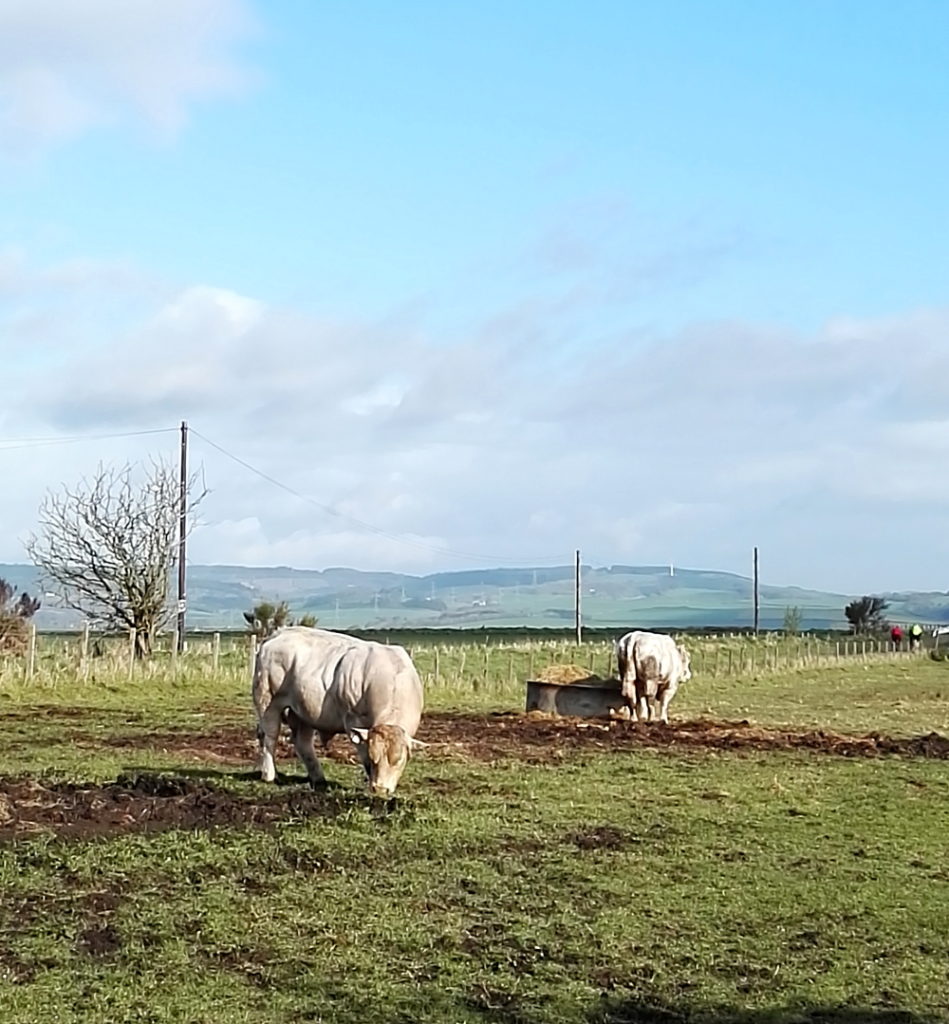

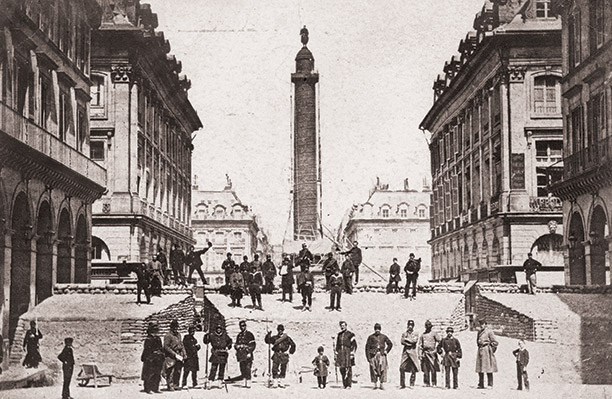
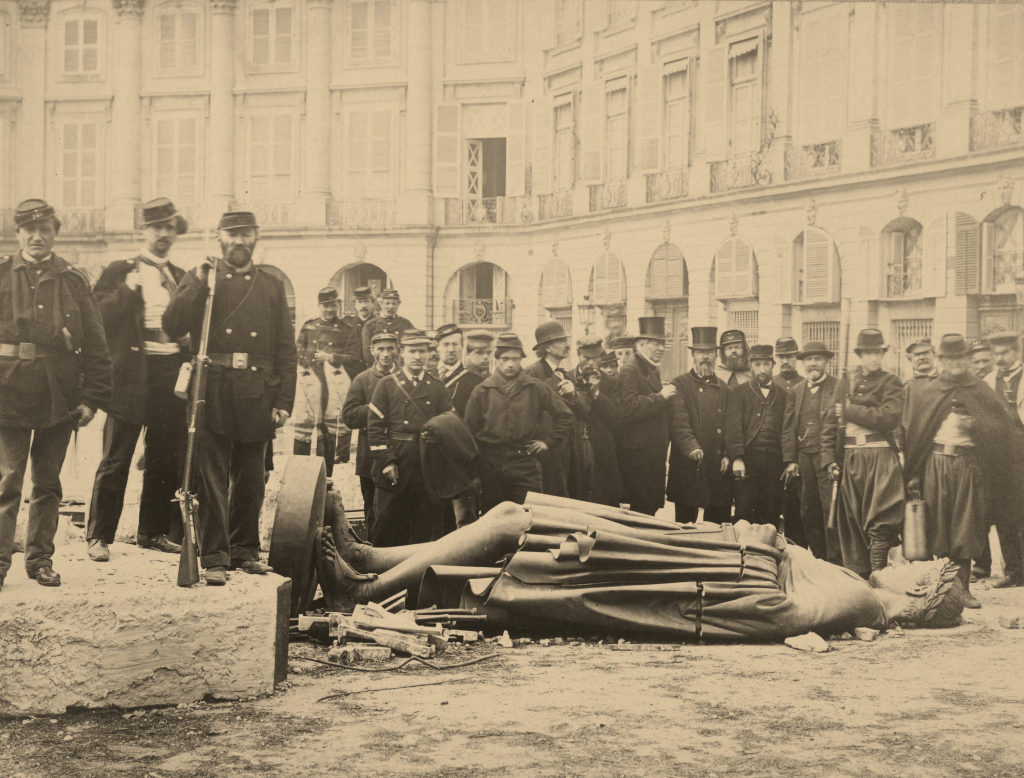




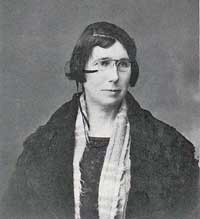



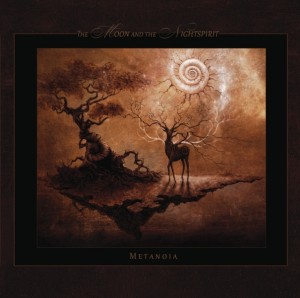

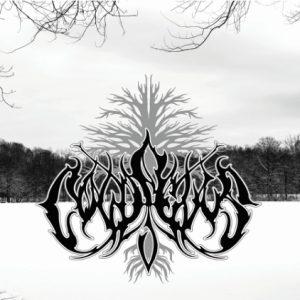
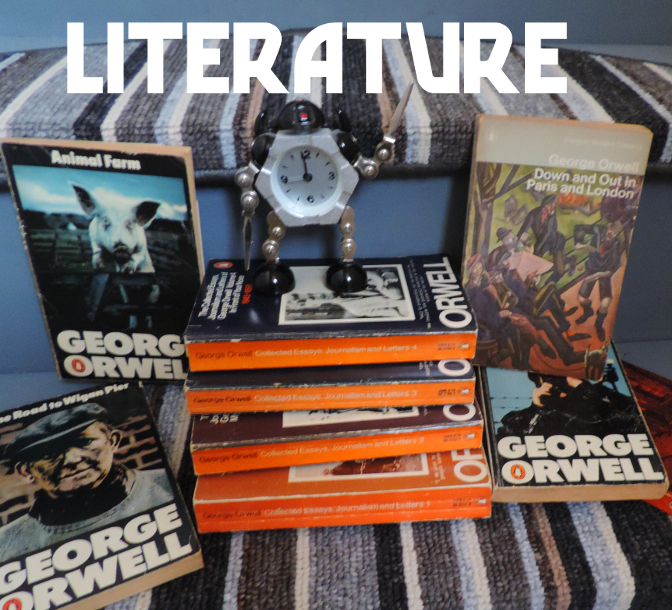




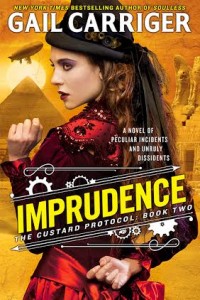
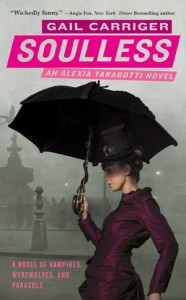 Soulless wasn’t Dawson’s Creek with vampires; the supernatural characters were, as with most modern/post-modern fiction, given a similar complexity to their human counterparts, but Carriger goes further, weaving the supernatural/natural worlds together in an ingenious yet extremely logical and historically-informed way. Part of what makes this so successful is that she placed her characters in a parallel version of the Victorian era, creating a society where vampires and werewolves, without sacrificing their predatory nature, exist alongside their mortal contemporaries as yet more finely nuanced layers in the already-complicated social hierarchy of Victorian Britain. If the Victorian era represents the height of the British preoccupation with social class and proper manners, these become even more crucial in Carriger’s world, where the correct way to interact with social superiors/inferiors includes people, possibly on both sides, whose politeness is the only thing preventing them from drinking your blood/eating you.
Soulless wasn’t Dawson’s Creek with vampires; the supernatural characters were, as with most modern/post-modern fiction, given a similar complexity to their human counterparts, but Carriger goes further, weaving the supernatural/natural worlds together in an ingenious yet extremely logical and historically-informed way. Part of what makes this so successful is that she placed her characters in a parallel version of the Victorian era, creating a society where vampires and werewolves, without sacrificing their predatory nature, exist alongside their mortal contemporaries as yet more finely nuanced layers in the already-complicated social hierarchy of Victorian Britain. If the Victorian era represents the height of the British preoccupation with social class and proper manners, these become even more crucial in Carriger’s world, where the correct way to interact with social superiors/inferiors includes people, possibly on both sides, whose politeness is the only thing preventing them from drinking your blood/eating you.


